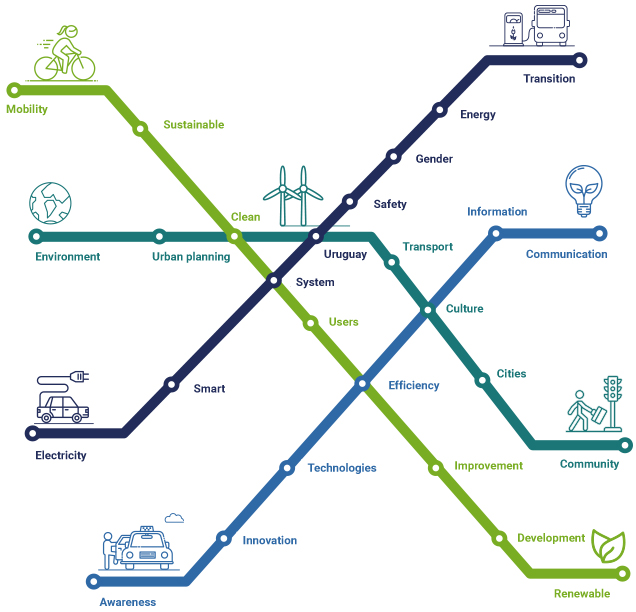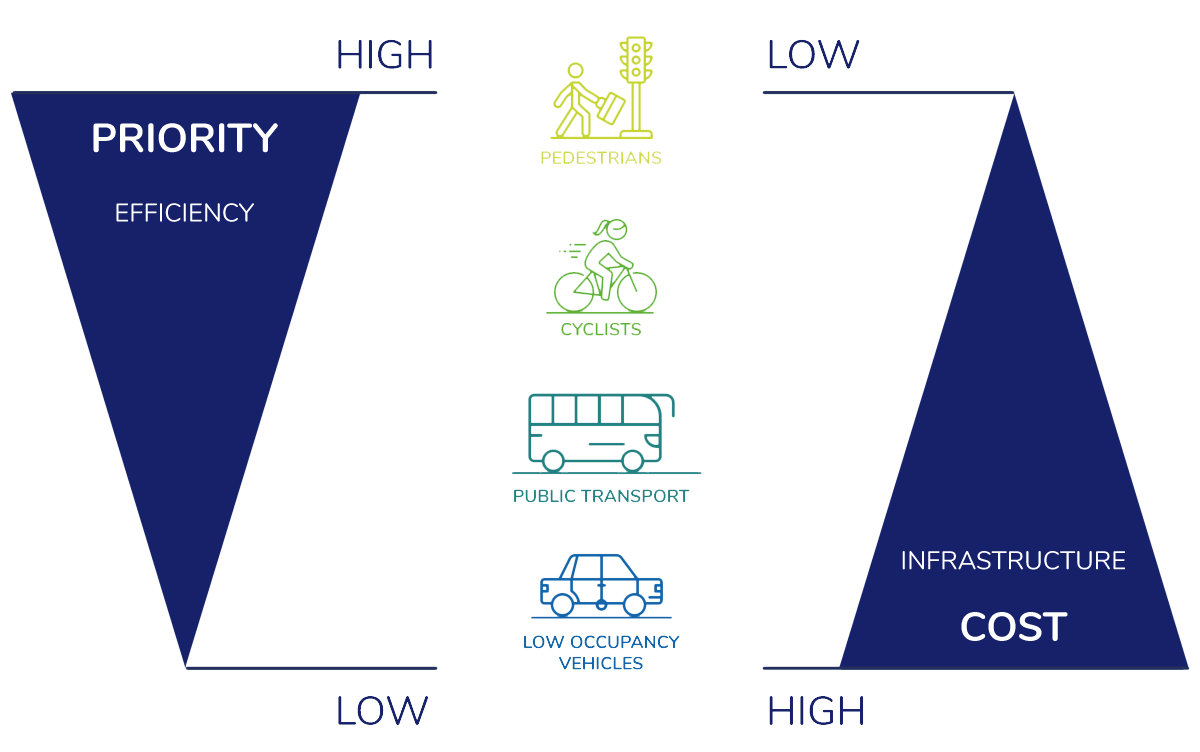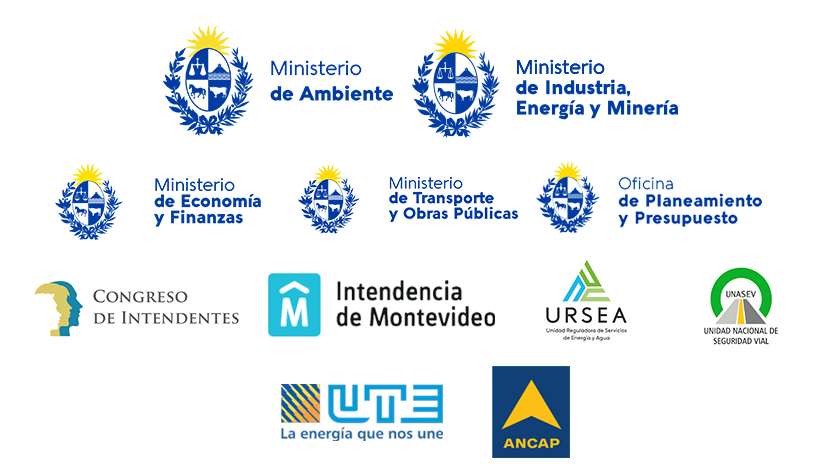What was the MOVÉS Project?
MOVÉS Project “Towards an efficient and sustainable urban mobility system in Uruguay” (URU / 17 / G32) promoted a sustainable low-carbon efficient and inclusive mobility system, through the improvement of institutional capacities, the development of adequate regulations, the application of innovative technologies and the promotion of a cultural change.
MOVÉS was a Project funded by the Global Environment Facility (GEF) between 2018 and 2022. Its implementing agency was the United Nations Development Program (UNDP) and it was executed by the Ministry of Industry, Energy and Mining (MIEM), in association with the Ministry of the Environment (MA) and the Ministry of Housing and Territorial Planning (MVOT), with the collaboration of the Uruguayan Agency for International Cooperation (AUCI).

Through regulatory framework adaptation and cultural change promotion, MOVÉS sought to promote the use of public passenger transport and active mobility (walking and cycling), as well as the replacement of passenger and cargo and last mile vehicles to electric and sustainable ones.


MOVÉS promoted equal access to mobility considering environmental and social aspects, taking into account gender and people’s socio-economic conditions. The Project responded to these objectives by supporting institutions through the generation of regulations and taxation, as well as urban planning, that favor the conditions for a more sustainable mobility.
The Project developed studies and proposals for fiscal frameworks that promote more efficient and sustainable modes and vehicles, technological regulations that allow for its development and usage in the whole country, in coherence with the region. Additionally, it worked in improvements in public passenger transport service quality, the incorporation of mobility in urban planning processes, with the aim of returning public space to people and obtaining more livable cities.
Likewise, MOVÉS carried out studies and fiscal proposals that promote the use of sustainable modes and vehicles, such as technical regulations that allow their development and use throughout the country, also seeking a coherent scope in the region. Finally, it supported the adjustment of environmental regulations so that they are more demanding in terms of safety and environmental requirements of vehicles and also regulate the complete life cycle of batteries.


Strategic partners
With the aim of joining forces and promoting joint efficient transportation policies, the Inter-Institutional Group for Energy Efficiency in Transportation was created. Area of dialogue, exchange and coordination of efforts to generate efficient transportation proposals. Today, with a broad institutional representation, the current members are: MA, MEF, MIEM, MTOP, OPP, Congress of Mayors, IM, URSEA, UNASEV, UTE and ANCAP. With technical representation from these institutions, MOVÉS participated in their meetings with the commitment to promote a more sustainable mobility.

Project results
32 electric buses
More than 3,603,563 km.
3,888 tons of CO2 avoided
5 agreements with public transport companies
63% of users prefer electric units
4 regulations to promote electric mobility
Data linkage between transport companies and the MIEM
4 institutional diagnoses with a gender perspective
Annual operation reports for electric buses
32 electric buses
More than 3,603,563 km.
3,888 tons of CO2 avoided
5 agreements with public transport companies
63% of users prefer electric units
4 regulations to promote electric mobility
Data linkage between transport companies and the MIEM
4 institutional diagnoses with a gender perspective
Annual operation reports for electric buses
Project Management Unit
Main milestones








